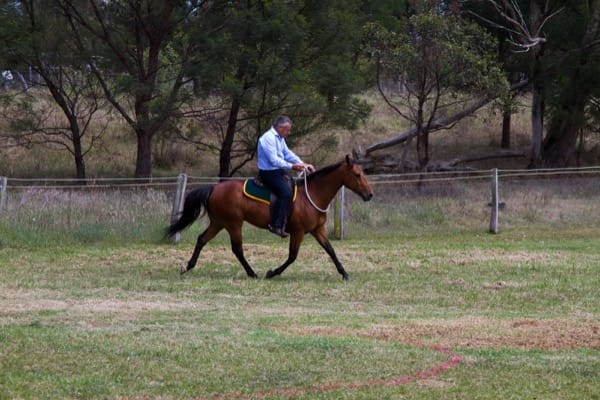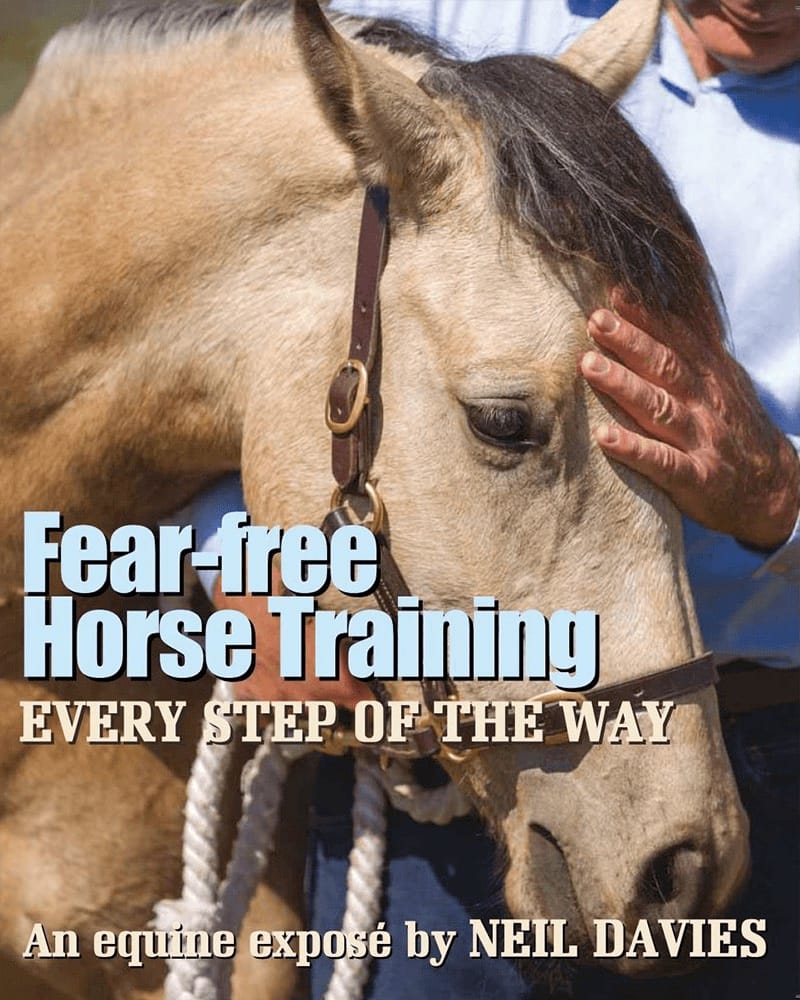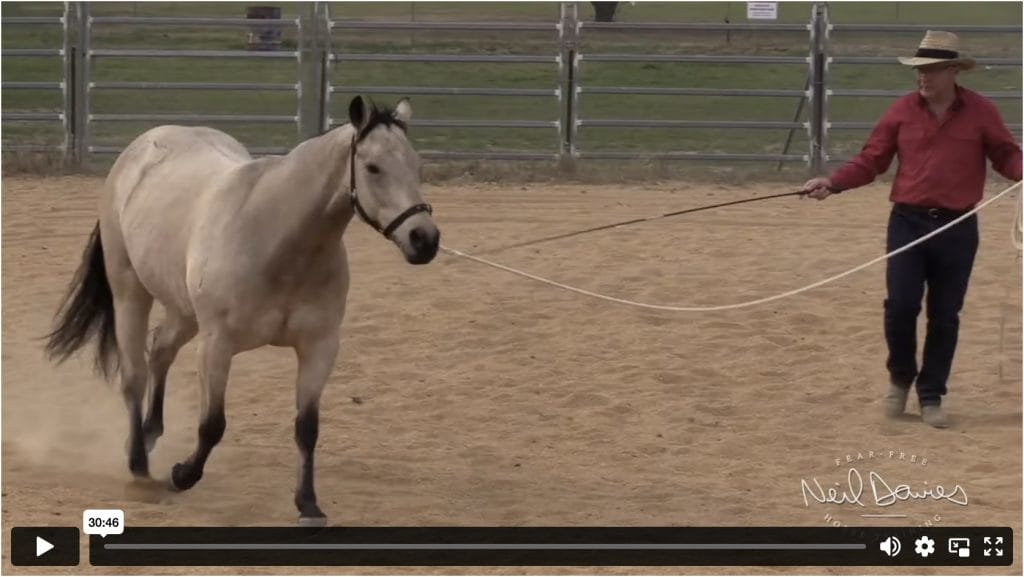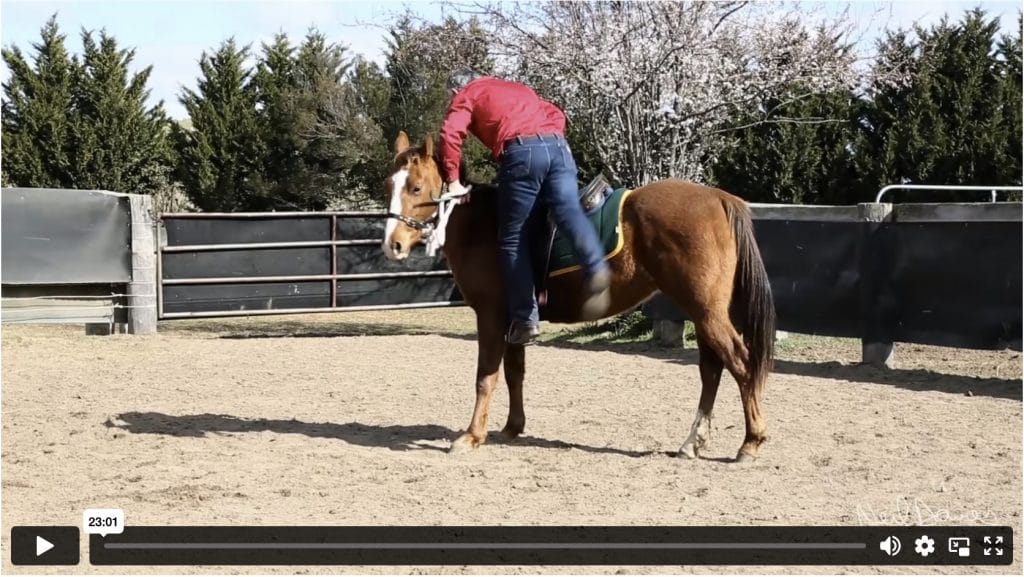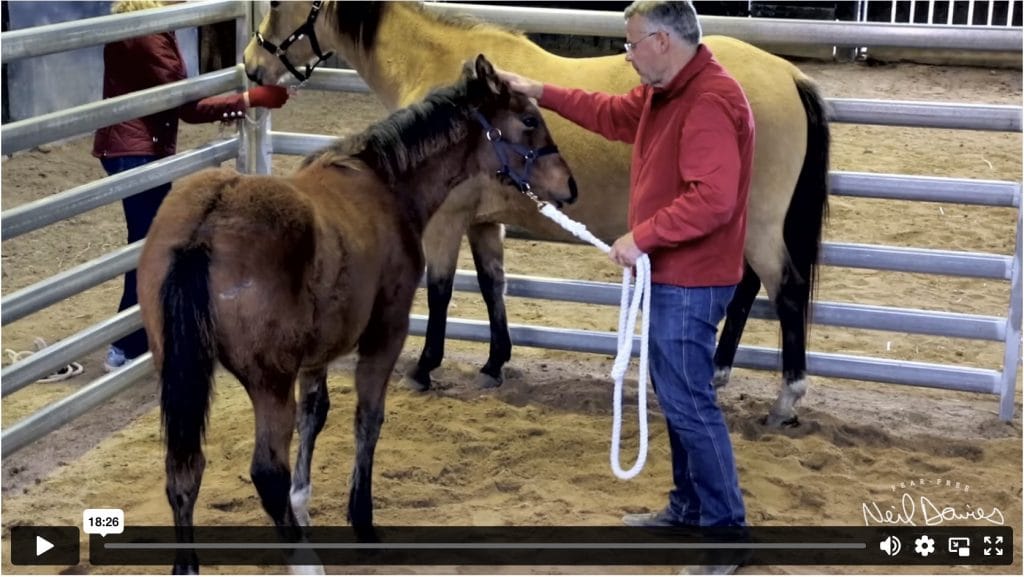How Smart is Your Horse?
How intelligent is your horse?
Are some horses smarter than others?
Are humans smarter than horses, or are horses smarter than humans?
Horses think all the time and maybe we should take a hint from that.
Yes, horses do think differently to humans.
Not less, just differently.
If a horse gets stuck behind a gate, he can’t work out to back up a few steps to get out from behind it.
He can’t reason that going backwards will get him around the gate and into the next paddock.
Though we think this is a very simple problem to solve, it’s beyond a horse’s reasoning power.
Horses can’t reason to watch carefully and copy you when they see you open a gate or open their stable door.
No matter how many times a horse sees you doing these things, he can’t reason to do it himself.
Some horses do play with latches and chains and as a result the gate opens.
The horse simply plays at random with a latch or chain and is rewarded when the gate opens.
Though he connects playing with the latch or chain to opening the gate, he doesn’t understand the mechanics of how the latch or chain works.
Do some horses learn more quickly than others?
When horses are relaxed and confident, there is very little difference in their ability to learn, especially in their early training.
When a horse is nervous and worried or has been frightened, he’ll be very slow to learn.
He’ll expect bad experiences and expect to be frightened by the trainer.
People often say such a horse is ‘stupid’, ‘dumb’ or ‘mad’.
A badly handled horse will need a number of lessons to build his confidence and get him into a frame of mind where he’s ready to learn.
However, when he becomes confident and relaxed, he’ll learn just as quickly as a well-handled horse.
Horses appear to learn at different rates simply because some have been well-handled and others have been badly handled.
People often misinterpret this and say that some horses are smarter than others.
Horses that have been trained for months or years will vary in their ability to cope with the mental pressure of competition.
Their physical ability to perform advanced movements will also vary. Some horses perform extremely well when they’re asked to jump higher, to run faster, to chase cattle or to perform advanced dressage movements.
Other horses struggle both mentally and physically, when challenged to work at a higher level.
Humans think they are far smarter than horses.
Yet it’s taken me thirty years to learn things that I can teach a horse in five minutes.
And when a new rider (an ‘intelligent’ human) is mounted on a poor old ‘dumb’ horse, the horse out-thinks the rider in less than five minutes.
The horse immediately knows that he can do his own thing and he’ll stop, swish his tail, pull the reins, run home or do whatever else he chooses.
An ‘intelligent’ human can’t outthink a ‘dumb’ horse in this situation.
Horses are excellent problem solvers.
However, the problems they work on are often very different from the problems that the trainer has in mind.
A worried horse will try and keep as far away from the trainer as possible and will constantly reposition himself to keep away.
Horses are very good at moving away from anything that worries them and they concentrate totally on doing this whenever they’re worried.
Meanwhile, the trainer thinks that they’re teaching the horse to lead or getting him ‘used to’ a flapping flag.
So the ‘intelligent’ human concentrates on one thing, while the horse concentrates on something totally different.
And when the lessons don’t go to plan, the human says that the horse is ‘dumb’ and ‘slow to learn’.
A recent Polish study purports to show that some horses are ‘smarter’ than others and that there is a correlation between how ‘smart’ a horse is and how long it will take to saddle and mount him for the first time.
Here are some quotes from the study:
“The researchers then evaluated the times needed to the first saddling and the first mounting of each horse, as well as each animal’s reactions.
Three licensed trainers were used, employing what the authors called a sympathetic method based on a freestyle training technique applied in Europe.”….
“During the tests, of 120 primary tested horses, 15 did not open the crib, and of the 105 remaining horses, 22 did not manage to be mounted.”….
“The findings suggested that horses of higher learning ability were not as willing to be mounted, whereas horses of lower learning ability cooperated better with the trainer and accepted more easily the presence of a human on their back.”….
There are huge and glaring holes in this study.
The first thing that the researchers have completely overlooked is each horse’s previous handling.
To accurately compare one horse with another when starting them under saddle, each horse must have had the exact same handling and life experiences.
It’s impossible to find two horses that have had the same handling and life experiences, let alone 120 horses.
However, the biggest problem with this study is that the researchers thought they were testing the horse’s ability to learn.
I say they were testing the trainers’ ability to start horses under saddle.
Instead of saying “22 (horses) did not manage to be mounted.”, the researchers should have concluded that the trainers couldn’t mount 22 of the horses.
In other words, 20.95% of horses couldn’t cope with the training approach that was used.
If over 20% of horses couldn’t cope with being started under saddle in this manner, surely something needs to change.
Even if horses do have different learning abilities, it should make absolutely no difference in our ability to train them.
After all, we’re supposed to be the intelligent ones.
Surely we can adjust our lessons to suit each horse, rather than expect horses to put up with a set system of training.

